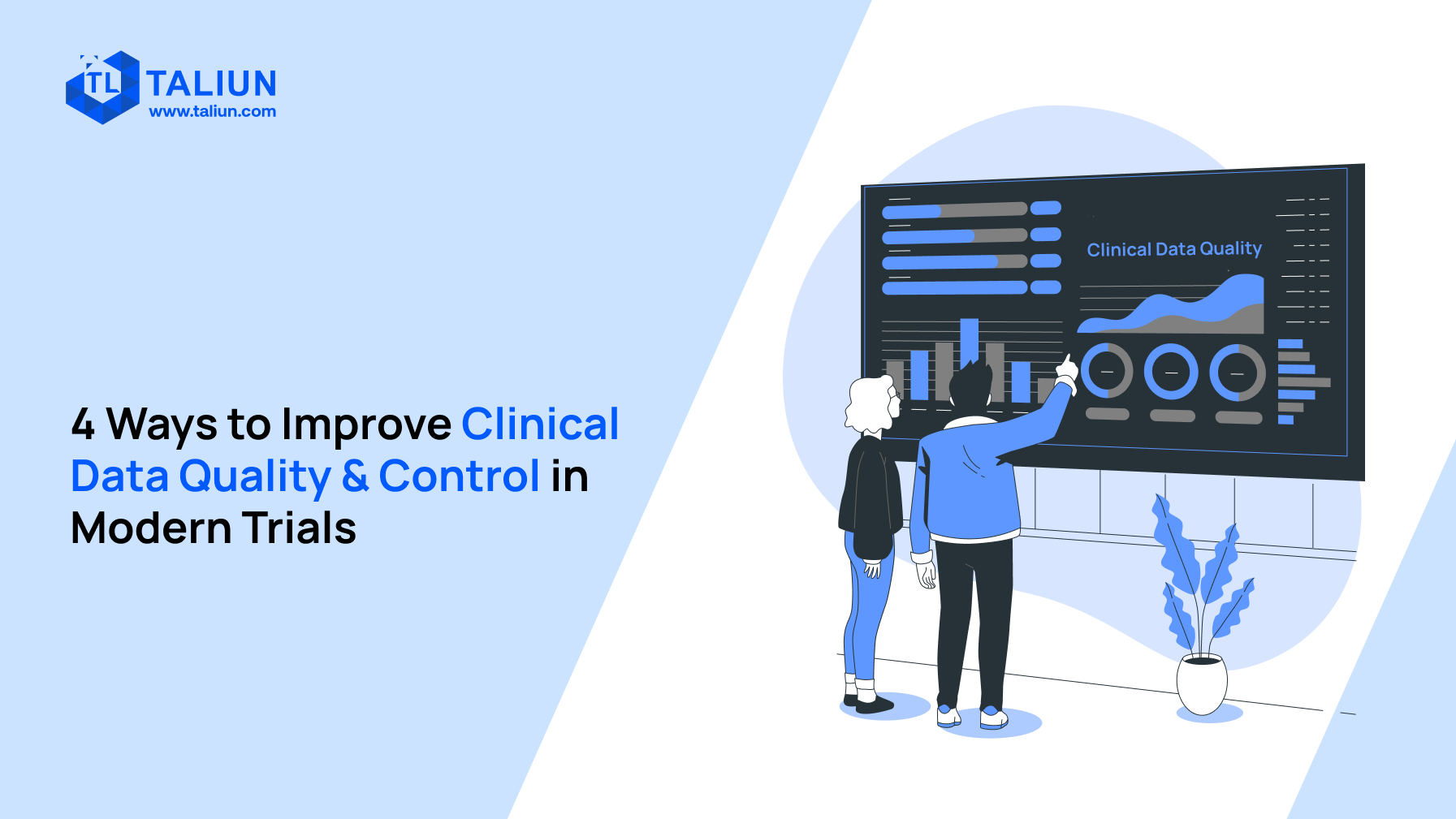4 Ways to Improve Clinical Data Quality & Control in Modern Trials

Improving clinical data quality and control in modern trials is Important for ensuring reliable research outcomes and meeting regulatory standards. As clinical trials become more complex, having strong data management strategies is more important than ever. Here are four effective ways to enhance clinical data quality and control in modern trials.
1. Implement Robust Data Collection Methods
Standardized Data Collection Forms Using standardized forms at all trial sites is key to maintaining consistency in data entry. This practice minimizes discrepancies that can arise from different interpretations of data requirements. Standardization ensures that all collected data is uniform, which is crucial for accurate analysis and reporting.
Training Data Entry Personnel Providing thorough training for data entry personnel can significantly reduce errors. Well-trained staff are more likely to understand the importance of accuracy and the specific requirements of the trial, leading to improved data quality. Regular refresher courses help keep the team updated on best practices and new technologies.
Regular Audits Conducting regular audits of data collection processes allows for early identification and correction of errors. These audits should assess both the data collection methods and the actual data being collected. By implementing a routine audit schedule, clinical trial teams can maintain high standards of data integrity from the start.
2. Leverage Advanced Clinical Data Management Tools
Automated Data Validation Checks Incorporating automated validation checks into the data management process can quickly identify discrepancies and ensure that collected data meets predefined standards. These tools can flag inconsistencies in real-time, allowing for immediate correction before they impact trial results.
Real-Time Data Monitoring Real-time monitoring systems enable clinical teams to track data as it is collected, providing immediate insights into potential issues. This proactive approach allows teams to address problems quickly, enhancing overall data quality and reducing the risk of significant errors going unnoticed until later stages of the trial.
Comprehensive Reporting Capabilities Advanced reporting tools offer detailed insights into data quality metrics, helping identify trends and areas needing attention. By using these reporting capabilities, clinical trial teams can make informed decisions about necessary adjustments to their data collection processes.
3. Embrace Digital Technologies
Digitalized Monitoring Systems Moving from paper-based processes to digital monitoring systems can streamline data management significantly. Digital tools not only facilitate faster evaluation of large datasets but also improve traceability throughout the study. A centralized monitoring system designed specifically for each study helps identify unusual patterns in real-time, enabling timely interventions.
Electronic Data Capture (EDC) Utilizing EDC systems enhances the speed and accuracy of data collection by automating many manual processes. These systems often include features such as image capture capabilities, validation checklists, and customizable workflows that cater to specific trial needs. By reducing reliance on manual entry, EDC systems minimize human error and enhance overall data quality.
4. Foster Continuous Training and Development
Ongoing Education for Clinical Data Management Professionals Continuous training programs are vital for keeping clinical data management professionals updated on the latest technologies and methodologies in the field. Training should cover topics such as automated validation processes, risk-based monitoring approaches, and advanced analytics techniques.
Integration of AI and Machine Learning Leveraging artificial intelligence (AI) and machine learning (ML) can further enhance data quality by automating routine tasks and identifying patterns that indicate potential issues early in the process. These technologies can predict possible data quality problems based on historical trends, allowing teams to take proactive measures before issues escalate.
Conclusion
Improving clinical data quality and control is essential for successful modern trials. By implementing robust data collection methods, leveraging advanced tools, embracing digital technologies, and fostering continuous education among clinical staff, organizations can enhance their ability to produce reliable trial outcomes. As clinical research continues to evolve, adopting these strategies will be crucial for maintaining high standards of data integrity and compliance with regulatory requirements.
By prioritizing these approaches, clinical trial teams not only improve their operational efficiency but also contribute to advancing medical science through more reliable research outcomes. The integration of innovative technologies promises to further revolutionize clinical data management, paving the way for more effective and successful trials in the future.
Subscribe to our Blogs
Contact Us
Thanks for subscribing! You'll now receive our latest blog posts straight to your inbox.
Please try again later.
Locations
US:
39899 Balentine Drive,Suite 200
Newark, CA 94560
Phone: +1-(408) 883 - 7902
India:
Ven Business Center I, First Floor, Baner - Pashan Link Rd, Pashan, Pune, Maharashtra 411021
Phone: +91 83293 46166
Copyright 2024 Taliun | Privacy Policy




